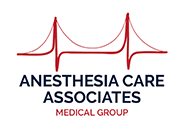FAQs
Anesthesia can be broken down into four main classifications: local, regional, general and monitored anesthesia care.
Local anesthesia – Used during minor surgical procedures, the anesthetic drug is generally injected into the tissue to numb just a specific location of your body. You remain awake for the duration of the procedure.
Regional anesthesia – An injection is made to numb a cluster of nerves near the area of your body that requires surgery. You may remain awake or be given a sedative, but you will not see or feel the actual surgery take place. There are several kinds of regional anesthesia.
General anesthesia – A general anesthetic drug will be used during a procedure that requires you to be unconscious and have no awareness or other sensations. Some are gases or vapors inhaled through a breathing mask or tube, and others are medications introduced through a vein. During anesthesia, you are carefully monitored, controlled and treated by your anesthesiologist, who uses sophisticated equipment to track all your major bodily functions.
Monitored Anesthesia Care – The length and level of anesthesia is calculated and constantly adjusted with great precision. At the conclusion of surgery, your anesthesiologist will reverse the process and you will regain awareness in the recovery room.
Certain procedures require the patient to be totally unconscious. In those instances, we continually monitor your heart rate, blood pressure and muscle control to ensure you do not feel, nor wake up from, the effects of surgery.
There are always going to be some risks with all operations and anesthetics. They are dependent upon many factors, including the type of surgery and the medical condition of the patient. Fortunately, serious adverse effects are very rare and we take the necessary precautions to prevent these from occurring. You should ask your anesthesiologist about any risks that may be associated with your anesthesia.
As a general rule, you should not eat or drink anything after midnight before your surgery. Under some circumstances, you may be given permission to drink clear liquids up to a few hours before your anesthesia.
Do not interrupt medications unless your anesthesiologist or surgeon recommends it. It is very important to tell your doctor about everything you take before surgery.
ACAMG is a separate entity that provides anesthesia. We bill for our services, not the actual drugs which were supplied to you by the hospital.
Co-insurance is calculated by your primary insurance carrier, and is the percentage of the balance which is the patient’s responsibility. If you have secondary insurance, please let our office know, and we will send the claim to that carrier for you.
A deductible is the fixed yearly amount the patient must pay out of pocket before the primary insurance carrier pays its portion of the bill.
Please contact 833-922-1081 with specific questions about payment options.
Please contact 833-922-1081 for payment options. Payments can be made by mail, online (www.personapay.com/acamg), by phone (please see your bill). Our pay-to address is Anesthesia Care Associates Medical Group. PO BOX 884616 Los Angeles CA 90088-4616
Please contact 415-440-2972 for a cash pay quote.
Please call 858-244-3169 for all cosmetic surgery prepayments.

